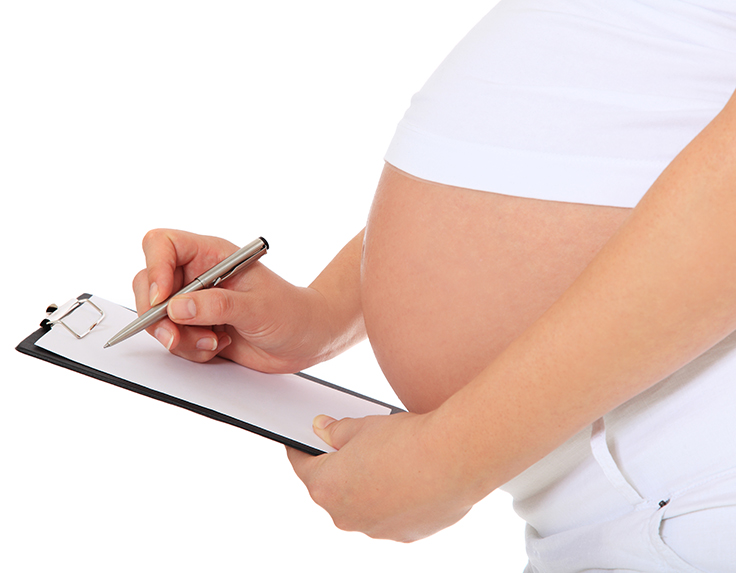Post-Term Pregnancy: Risks and Options
Imagine eagerly anticipating the arrival of your little one, counting down the days until their expected due date. But as that date comes and goes, you find yourself in the realm of post-term pregnancy, where the waiting game becomes a bit more uncertain. Post-term pregnancy refers to pregnancies that extend beyond the full-term gestational period of 40 weeks. While it’s natural for pregnancies to vary in length, there are certain risks and considerations that come with going past the due date.
In this blog post, we will explore the potential risks associated with post-term pregnancy and the various options available to ensure the health and well-being of both mother and baby. Whether you’re currently in this situation or simply seeking knowledge for the future, understanding the risks and options of post-term pregnancy can empower you to make informed decisions and navigate this unique stage of pregnancy with confidence.
What is post-term pregnancy?
Post-term pregnancy refers to a pregnancy that extends beyond the full-term gestational period, which is typically considered to be 40 weeks. It occurs when a pregnancy continues beyond the expected due date. While most pregnancies naturally progress to delivery before or around the due date, a small percentage of pregnancies go into the post-term period.
The exact definition of post-term pregnancy may vary slightly, but it is generally considered to be a pregnancy that has reached 42 weeks or beyond. Post-term pregnancies can present certain risks and considerations for both the mother and the baby, making it important to closely monitor and manage these pregnancies to ensure the health and well-being of both.
Causes of post-term pregnancy
Post-term pregnancy, which refers to a pregnancy that extends beyond the full-term gestational period, can occur due to several factors. The exact causes of post-term pregnancy are not fully understood, but some possible reasons include:
Incorrect due date calculation: The estimated due date is typically determined based on the first day of the last menstrual period and may not always accurately reflect the actual conception date. In cases where the due date is miscalculated, it can result in a post-term pregnancy.
Genetic factors: Some studies suggest that certain genetic factors may play a role in post-term pregnancies. Genetic variations in the baby and the mother’s genes involved in the timing of birth could influence the length of gestation.
Placental insufficiency: In some cases, the placenta may not function optimally towards the end of pregnancy, leading to reduced nutrient and oxygen supply to the baby. This can result in the baby remaining in the womb for a longer period.
Hormonal imbalances: Hormonal changes, particularly a decrease in levels of certain hormones such as progesterone, may impact the onset of labour. If the hormonal signals for labour initiation are delayed or disrupted, it can lead to a post-term pregnancy.
Maternal factors: Certain maternal factors, such as obesity, previous post-term pregnancies, or a history of delivering large babies, may increase the likelihood of experiencing a post-term pregnancy.
It’s important to note that the exact cause of post-term pregnancy can vary from case to case, and often, multiple factors may contribute. If you have concerns or questions about post-term pregnancy, it’s best to consult with a healthcare provider who can provide personalized guidance and monitoring throughout your pregnancy.

Risks associated with post-term pregnancy
Post-term pregnancy, which refers to a pregnancy that extends beyond the full-term gestational period, can present certain risks for both the mother and the baby. Some of the potential risks associated with post-term pregnancy include:
Fetal macrosomia: Post-term babies are at a higher risk of being larger than average (macrosomia), which can increase the chances of complications during delivery, such as shoulder dystocia or the need for a cesarean section.
Meconium aspiration syndrome: Post-term babies may pass their first bowel movement, called meconium, while still in the womb. If they inhale this meconium-stained amniotic fluid, it can lead to respiratory problems and a condition known as meconium aspiration syndrome.
Placental insufficiency: As the pregnancy progresses beyond the due date, the placenta may not function as effectively, leading to reduced nutrient and oxygen supply to the baby. This can increase the risk of fetal distress or stillbirth.
Umbilical cord complications: Prolonged pregnancy may increase the risk of umbilical cord complications, such as cord compression or prolapse, which can interfere with the baby’s oxygen supply.
Decreased amniotic fluid levels: Amniotic fluid levels may decrease in post-term pregnancies, which can impact the baby’s movements and cushioning, potentially leading to complications.
Maternal complications: Post-term pregnancies can increase the risk of maternal complications, such as an increased likelihood of requiring medical interventions during delivery, perineal tears, postpartum haemorrhage, and infection.
It’s important to note that not all post-term pregnancies will experience complications, and the risks can vary from case to case. Regular prenatal care and close monitoring can help identify and manage these risks effectively. If you have concerns about post-term pregnancy, it’s recommended to consult with a healthcare provider who can provide personalized guidance and monitoring throughout your pregnancy.
Now that we have explored the potential risks associated with post-term pregnancy, let’s address some frequently asked questions (FAQs) that often arise when discussing this topic. Understanding these common concerns can provide further insights and help expectant parents make informed decisions and seek appropriate care during post-term pregnancies.
Q1: What health problems can be associated with post-term pregnancy?
A1: Post-term pregnancy can raise the risk of certain health problems for both the baby and the mother. Some potential complications for the baby include fetal macrosomia, meconium aspiration syndrome, and umbilical cord complications. The risks for the mother may include a higher likelihood of requiring medical interventions during delivery, perineal tears, postpartum haemorrhage, and infection.
Q2: Does post-term pregnancy increase the risk of health problems?
A2: Yes, post-term pregnancy can raise the risk of health problems for both the baby and the mother. The longer the pregnancy extends beyond the due date, the higher the potential risks become. It’s important to closely monitor post-term pregnancies and take appropriate measures to ensure the well-being of both the baby and the mother.
Q3: What are the risks of post-term pregnancy to the pregnant woman?
A3: Post-term pregnancy can pose risks to the pregnant woman, including an increased likelihood of requiring medical interventions during delivery, such as induction of labour or cesarean section. There is also a higher risk of perineal tears, postpartum haemorrhage (excessive bleeding after delivery), and infection. Regular prenatal care and close monitoring are crucial to manage and mitigating these risks effectively.







































Leave a comment